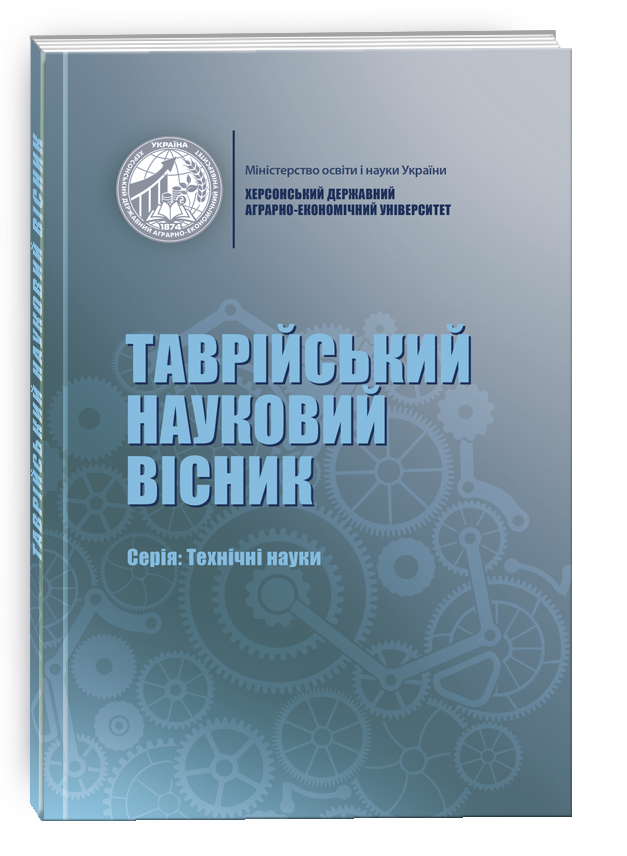RICK ANALYSIS OF GENERATIVE ARTIFICIAL INTELLIGENCE IN EDUCATION AND RESEARCH WITH GUIDELINES FOR RESPONSIBLE USE AND ROLE ATTRIBUTION
DOI:
https://doi.org/10.32782/tnv-tech.2024.5.5Keywords:
generative artificial intelligence, generative AI, higher education, personalized learning, academic integrity, AI risks, algorithmic bias, hallucination, educational policy, AI governanceAbstract
The subject of the research is the analysis of the advantages and risks associated with the adoption of generative artificial intelligence (GAI) in education and research, as well as the development of policies for its ethical and responsible use. The objective is to propose recommendations for the attribution of GAI's role in education and research, based on an analysis of the associated risks. The article addresses the following tasks: analyze the benefits of GAI in facilitating personalized and adaptive learning, automating content creation, and accelerating data synthesis for research; identify and categorize risks associated with the use of GAI in higher education, and suggest strategies for mitigating these risks; propose recommendations for ensuring transparency and accountability in the use of GAI-generated content in education and research. The following methods are used: systematic review of current literature on the application of GAI in education and research, comparative analysis of GAI-related practices in academic institutions, and risk categorization based on the potential ethical and practical implications of GAI usage. The research highlights key advantages of GAI, such as enhancing personalized learning experiences, automating the creation of educational materials, and accelerating research through data synthesis. At the same time, it identifies critical risks, including overreliance on GAI, perpetuation of bias, the phenomenon of GAI "hallucinations," and threats to academic integrity. Based on these findings, the article offers a set of recommendations for developing comprehensive policies that govern the ethical use of GAI in higher education. The proposed policies and recommendations provide a foundational framework for universities to develop tailored GAI governance strategies that reflect the specific needs and practices of their educational and research activities. These policies are designed to promote ethical GAI use, ensure transparency, and mitigate potential risks, while maximizing the benefits of GAI technologies. Furthermore, the study emphasizes the importance of continuous evaluation and adaptation of these policies as GAI technologies evolve.
References
Pinchuk O.. Malytska I. «Responsible and ethical use of artificial intelligence in research and publishing», ITLT, vol. 100. no. 2. pp. 180–198. Apr. 2024. URL: https://journal.iitta.gov.ua/index.php/itlt/article/view/5676 (дата звернення: 15.11.2024).
Anthony Hié, Claire Thouary. How GAI Is Reshaping Higher Education. 2023. URL: https://www.aacsb.edu/insights/articles/2023/10/how-ai-is-reshaping-highereducation (дата звернення: 15.11.2024).
Learning about artificial intelligence: A hub of MIT resources for K-12 students. 2020. URL: https://news.mit.edu/2020/learning-about-artificial-intelligence-hub-ofmit-resources-k-12-students-0407 (дата звернення: 15.11.2024).
Guidance for the Use of GAI. 2023. URL: https://teaching.ucla.edu/resources/ai_guidance/ (дата звернення: 15.11.2024).
Sarah Steimer. Human-aware A.I. helps accelerate scientific discoveries. URL: https://news.uchicago.edu/story/human-aware-ai-helps-accelerate-scientificdiscoveries-new-research-shows (дата звернення: 15.11.2024).
Wayne Holmes, Maya Bialik, Charles Fadel. Artificial Intelligence in Education: Promises and Implications for Teaching and Learning. 2019. URL: https://www.researchgate.net/publication/332180327_Artificial_Intelligence_in_Education_Promise_and_Implications_for_Teaching_and_Learning (дата звернення: 15.11.2024).
Carlo Cadenas. GAI in Science: How Artificial Intelligence is Transforming Scientific Research. 2023. URL: https://www.nature.com/immersive/d41586-023-03017-2/index.html (дата звернення: 15.11.2024).
Краковецький О.Ю., Шевченко Н.Ю. Аналіз політики щодо використання технологій генеративного штучного інтелекту в освітньому процесі. Комплексне забезпечення якості технологічних процесів та систем : зб. тез доп. XІV міжнар. наук.-практ. конф., м. Чернігів, 23–24 травн. 2024 р. Чернігів, 2024. С. 348-349.
Zawacki-Richter Olaf, Victoria I. Marín, Melissa Bond & Franziska Gouverneur. Systematic review of research on artificial intelligence applications in higher education – where are the educators? 2019. URL: https://educationaltechnologyjournal.springeropen.com/articles/10.1186/s41239-019-0171-0 (дата звернення: 15.11.2024).
H. Lee Swanson, Amber Moran, Cathy Lussier, Wenson W. Fung. The Effect of Explicit and Direct Generative Strategy Training and Working Memory on Word Problem-Solving Accuracy in Children at Risk for Math Difficulties. Learning Disability Quarterly. 37(2):111-123. 2014. DOI: 10.1177/0731948713507264.
Mohammad Behdad and etc. Artificial Intelligence and COVID-19: Deep Learning Approaches for Diagnosis and Treatment. 2020. URL: https://pmc.ncbi.nlm.nih.gov/articles/PMC8043506/ (дата звернення: 15.11.2024).
Anmol Arora, Ananya Arora. Generative adversarial networks and synthetic patient data: current challenges and future perspectives. 2022. URL: https://consensus.app/papers/networks-patient-data-challenges-future-perspectives-arora/c5c1d6d948af5c53ae41fee34e73b51d/?utm_source=chatgpt (дата звернення: 15.11.2024).
Philippe Burlina and etc. Addressing Artificial Intelligence Bias in Retinal Disease Diagnostics. 2021. URL: https://www.researchgate.net/publication/340997186_Addressing_Artificial_Intelligence_Bias_in_Retinal_Disease_Diagnostics (дата звернення: 15.11.2024).
Varun Magesh and etc. Hallucination-Free? Assessing the Reliability of Leading GAI Legal Research Tools. 2024. URL: https://www.researchgate.net/publication/381109273_Hallucination-Free_Assessing_the_Reliability_of_Leading_AI_Legal_Research_Tools (дата звернення: 15.11.2024).
Angela Jones, Anita Olds, Joanne Lisciandro. Understanding the Learner: ffective course design in the changing higher education space. 2023. URL: https://www.researchgate.net/publication/311453970_Understanding_the_Learner_Effective_course_design_in_the_changing_higher_education_space (дата звернення: 15.11.2024).
Syllabi Polices for GAI. 2024. URL: https://aiedusimplified.substack.com/ (дата звернення: 15.11.2024).
Levin Brinkmann et al. Machine Culture. 2023. URL: https://arxiv.org/ftp/arxiv/papers/2311/2311.11388.pdf (дата звернення: 15.11.2024).







